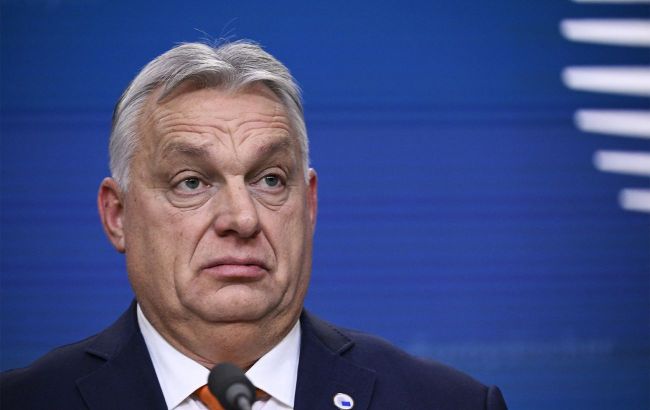European Commission seeks to 'bribe' Budapest to prevent veto on sanctions against Russia – Media
 Photo: Hungarian Prime Minister Viktor Orbán (Getty Images)
Photo: Hungarian Prime Minister Viktor Orbán (Getty Images)
The European Commission wants to unfreeze €550 million allocated to Hungary. With this move, the Commission aims to overcome the veto on sanctions against Russia by Hungarian Prime Minister Viktor Orbán, Financial Times reports.
The European Union is under pressure from US President Donald Trump. Washington is demanding a complete halt to all energy imports from Russia and measures against companies in India and China that purchase Russian oil.
However, a ban on oil and gas imports from Russia as part of a sanctions package can only be adopted unanimously. Hungary and Slovakia, the largest importers of Russian oil and gas, are threatening to veto such sanctions.
According to the European Commission, the new sanctions package against Russia will target "cryptocurrency, banks, and the energy sector." In addition, the planned phase-out of Russian energy resources, scheduled for 2027, will be accelerated.
Orbán and his role
The pro-Russian Hungarian Prime Minister, Orbán, has repeatedly opposed reducing dependence on Russian oil and gas. In response to his stance, Brussels has frozen roughly €22 billion allocated to Budapest since 2022.
Of this amount, €10 billion was unfrozen in exchange for lifting Hungary’s veto on aid to Ukraine. Another €157 million was released thanks to a legal loophole Budapest was able to exploit, allowing it to "reallocate" frozen funds to other programs.
Budapest is now attempting to use this loophole again, demanding €605 million from the European Commission as part of a "mid-term" allocation of EU joint budget spending. Next year, Orbán faces new parliamentary elections, while Hungary’s economic situation is worsening.
Currently, it depends entirely on the European Commission whether Budapest will receive even a single eurocent. Sources told the outlet that around €550 million are ready to be given to Orbán — but not without conditions.
Sanctions against Russia: 19th package
On September 19, the European Commission presented the 19th package of anti-Russian sanctions for discussion among EU member states. Among other measures, it includes a provision allowing European countries to completely phase out Russian liquefied natural gas (LNG).
According to media reports, the move to implement the ban on Russian LNG imports by January 1, 2027, was entirely expected. One reason for this was pressure from US President Trump on the EU, demanding a complete halt to the purchase of energy resources from Russia.

